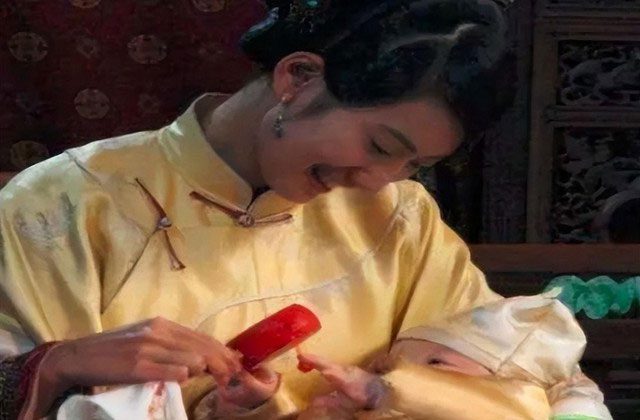Becoming a wet nurse for affluent families has become a common profession during the feudal era in China.
In feudal China, wet nurses, also known as royal nurses, were women who specialized in providing breast milk for others’ children. Often, they were impoverished women who had to leave their own children to work as wet nurses for the offspring of wealthy families.
The wet nurse profession has a long-standing tradition in Chinese history, emerging as a popular occupation during the Western Zhou Dynasty; by the Ming and Qing Dynasties, the royal family and officials would hire wet nurses to care for their children.
So, why did wealthy families in ancient times hire wet nurses when the mothers themselves could breastfeed their own children?

The tradition of wet nursing has a long history in China.
First of all, an important reason is that in ancient times, there were no powdered milk or other substitutes.
Breast milk is the best food for a child’s development, providing essential nutrition and immunity. If a biological mother cannot produce milk or breastfeed, it becomes necessary to find a wet nurse for the child; otherwise, the child could suffer from malnutrition or even die.
The medical conditions of that time were quite poor, with a very high infant mortality rate, making the presence of wet nurses crucial for the survival and health of newborns from wealthy backgrounds.
The second objective reason is that hiring a wet nurse could save time for the mother in caring for the newborn, allowing both partners to focus on having more children to continue the family line.
Society at that time was male-centered, with men’s status and power significantly surpassing that of women. Men could have multiple wives and concubines, while women could only have one husband.
The value of feudal women largely depended on their ability to give birth to sons, who could inherit family titles and wealth in the future, bringing glory and opportunities to the clan.
If a mother had to care for her child after giving birth, it would generally be difficult for her to conceive again. This would delay the time for the next child and lower her status within the family.
Many women would choose to hire wet nurses to care for their children, allowing them to regain their figure and strength as quickly as possible to conceive again and have more children, thus stabilizing their marriage and family.

The more powerful a family is, the more often they hire wet nurses.
The third subjective reason is that hiring a wet nurse can demonstrate one’s identity and status, as well as bind the husband’s heart.
Wealthy families of that time often took pride in emulating the habits of royalty. One of these was hiring wet nurses to care for their children.
The number, character, and talents of the wet nurse were symbols of dignity and status; the more powerful the family, the more frequently they hired wet nurses. This habit showcased the wealth and strength of the clan. Furthermore, with money available, why not use it to make one’s life easier instead of struggling to care for children?
Additionally, some women preferred not to breastfeed themselves to maintain their beauty and allure, avoiding any impact on their figure and skin, and not wanting their husbands to see them aging, so they often chose to hire wet nurses to fulfill their maternal roles.
The final special reason is that royal family members established the wet nurse system to prevent the biological mothers of princes, as well as maternal families, from interfering in political affairs.
In the Ming and Qing royal families, newborn princes were immediately handed over to wet nurses for care, and their biological mothers were not allowed to be close to them to avoid unpredictable consequences for the reigning royal family.
This method reduced the intimacy between the princes and their concubines. However, it also led to increasingly deep relationships between princes and their wet nurses. Some princes even regarded their wet nurses as their biological mothers or developed inappropriate relationships with them, resulting in various anecdotes and tragedies throughout history.
In conclusion, why wealthy families in ancient times hired wet nurses is a complex and intriguing question involving social, cultural, political, economic, and other factors.
Although the profession of wet nursing has disappeared with the changing times, the stories and influence of these women remain worthy of exploration and reflection by future generations.




















































